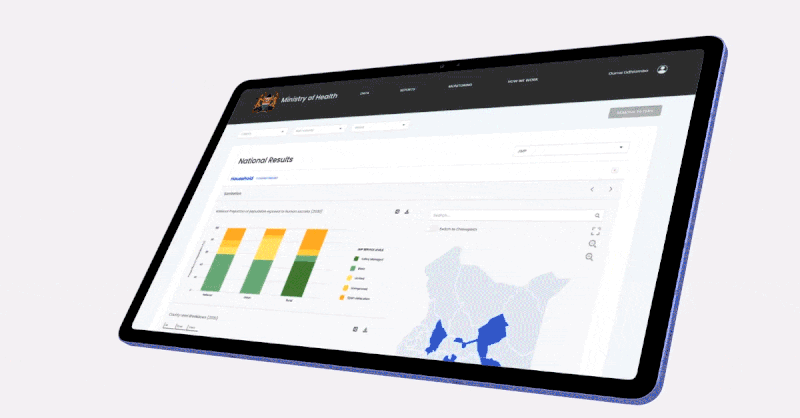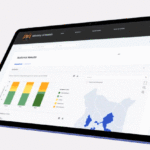The government of Kenya needs a way to effectively monitor sanitation and hygiene facilities nationwide. Akvo is developing an integrated Real Time Management Information System (RTMIS) to collect, analyze, and visualize all sanitation and hygiene data in both rural and urban Kenya, allowing the Ministry of Health to improve sanitation and hygiene for citizens nationwide.
The challenge
As Kenya gears towards accelerated implementation of the Sustainable Development Goals (SDGs), a comprehensive system for monitoring sanitation and hygiene data is crucial. Without a national system to aid evidence-based decision-making, the government isn’t able to effectively monitor the SDGs and improve resource allocation.
The solution
Akvo is developing an integrated Real-Time Monitoring and Information System (RTMIS) for sanitation and hygiene data across rural and urban Kenya. The information generated from the RTMIS will aid in the planning, monitoring, and evaluation of SDG indicators. The data will also provide insight into all the levels of services defined by the WHO-UNICEF JMP in urban and rural settings as well as in institutions (healthcare facilities, schools, etc.). In addition to collating primary data, the RTMIS also enables integration with secondary data on enabling environment, demand, supply, capacity, and finances.
The impact
Once fully developed and rolled out, the RTMIS platform will support the monitoring and evidence-based decision-making of the national government, as well as all 47 county governments. The availability of real-time monitoring data can support effective planning and improve the efficiency of services by both county and national governments. The RTMIS will provide synthesized reports that can feed into other global monitoring systems such as the JMP, the UN-Water Global Analysis and Assessment of Sanitation and Drinking Water (GLAAS), and IATI (International Aid Transparency Initiative).
Credit: Akvo



